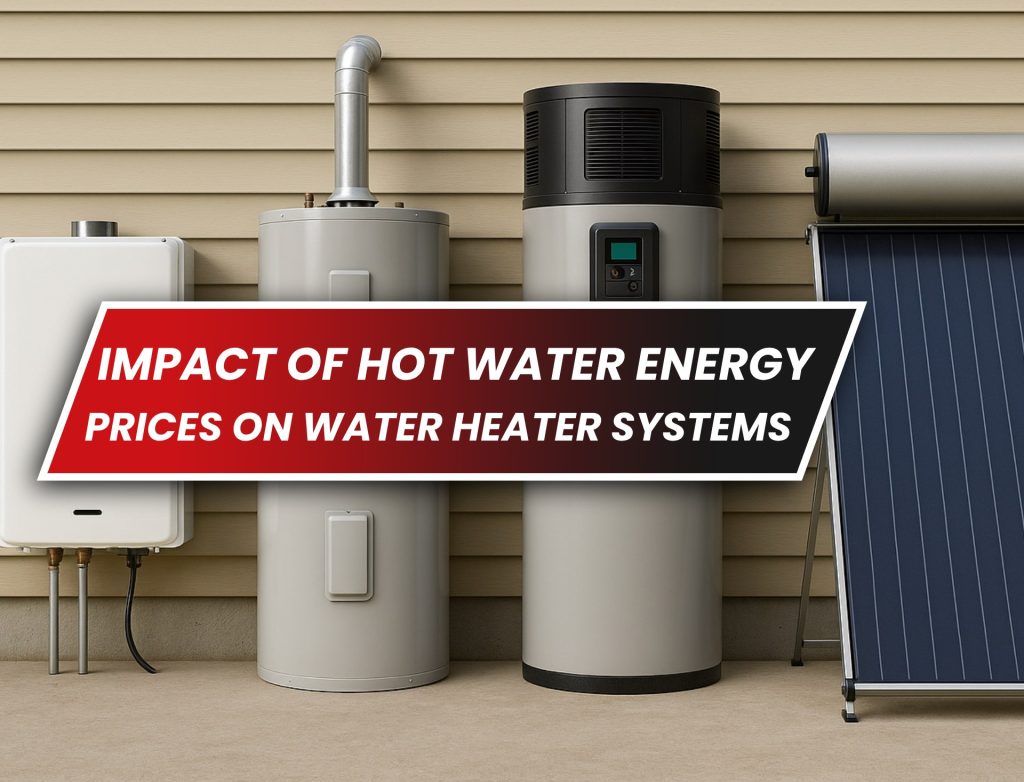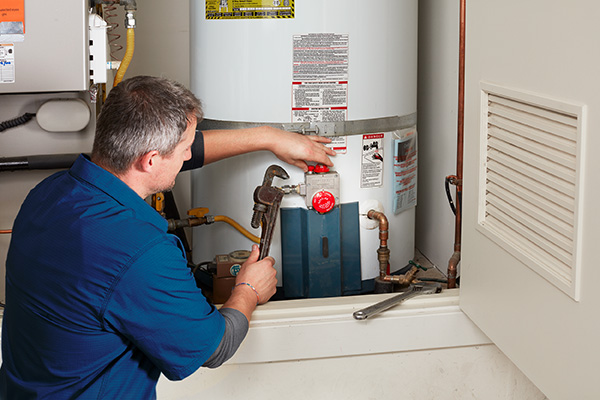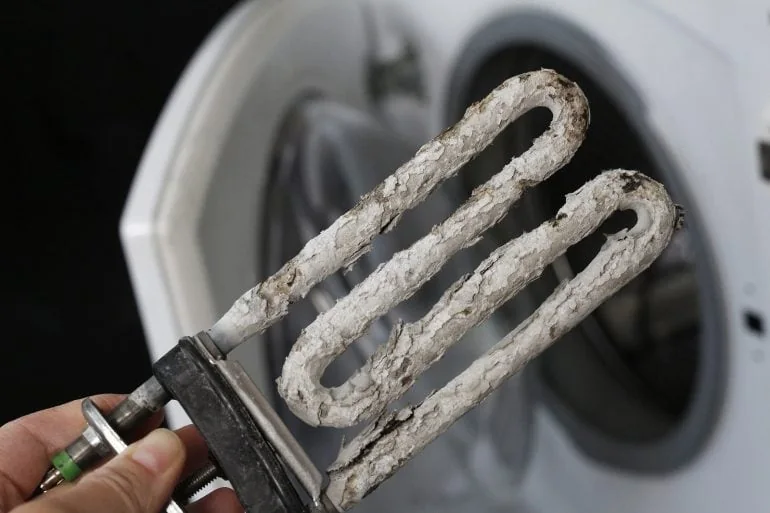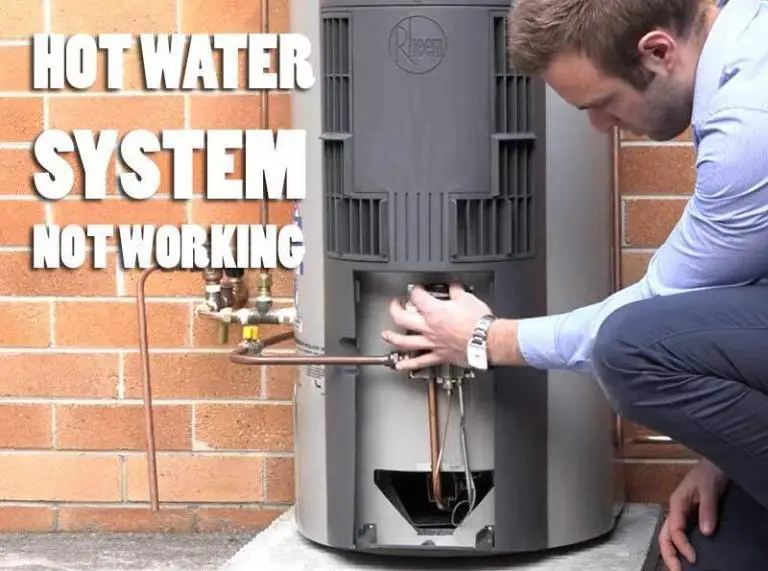
Australians can feel that everything is getting more expensive. The cost of living has increased to extreme levels, and many […]

About 80% of men and 90% of women in Australia use hot showers daily. To most of us, a hot shower is a simple joy that’s usually taken for granted.
However, it suddenly becomes a luxury when we experience hot water not working. That is when we start rushing desperately to find any available solution.
If you happen to find that your hot water system has stopped working, there are a few things that you can examine as possible causes.
Read our guide to learn about possible causes of the water heater not working issue.
We will also provide some tips and potential remedies to try before calling the experts.
One of the most common reasons your hot water system isn’t working can simply be due to a lack of power supply. However, you can’t just assume this is the case without sufficient proof.
First, check if the breaker supplying power to the hot water system is tripped within your circuit breaker box. In that case, you can try fixing it on your own if you have some expertise in handling electricity.
Now, go back to your shower, switch it on, and check if the hot water issue is fixed. If that doesn’t solve the hot water not working issue, continue troubleshooting, and this time check the fuse (if it’s wired) to confirm it isn’t blown.
If it’s blown, then you might be dealing with electrical shorts or overloading. This could be due to a problematic appliance, or it may be something wrong with the wiring.
These fuses are replaceable, so replace them if blown. If this brings no solution, you should call a professional electrician to investigate if the problem persists.
Also, it’s worth checking the power cord and the outlet that your hot water system runs from. Ensure the cord is properly fixed to its socket and the socket is operating fine. You can use another appliance to test whether the socket is working properly.
If another appliance works normally using the same socket, you might have the cord to blame. See if it’s frayed, with exposed wires, etc., and plan a replacement.
Another possible cause could be a problem with the internal electrical connections.
That may mean things like loose wiring, improper switches, or even a defective control board. Repairing the internal electrical equipment is dangerous, so it’s best to call a certified technician.
The minerals present in water, for instance, calcium and magnesium, mostly tend to settle at the base of your water heater, forming sediments.
These sediments can slowly accumulate in your hot water system, leading to several hot water not working complications.
To begin with, they take up space, thus reducing the space available for hot water, so you will end up with less hot water.
Secondly, the sediments form an insulation layer between the heating element or gas burner and the water, thereby delaying the heating cycle and causing more gas or electricity usage. The result is higher utility bills.
Thirdly, sediment buildup also increases the corrosion of the tank, especially if the sediment is acidic. This can prematurely wear out your heater and cause leaks or tank failure.
On top of that, such sediments may harbour bacteria and foster the growth of unwanted microorganisms that cause foul odors in water.
To avoid all these issues, you should observe proper maintenance of your hot water system. For instance, you can flush your water heater tank from time to time to remove sediments. Flushing involves draining the tank, cleaning it properly, and then filling it with fresh water.
You can use the manufacturer’s instructions as your guide or leave it to a qualified plumber to ensure the procedure is done properly and safely.
It is also advised to install a water softener to reduce the mineral content in the water supply: this is very useful to prevent the accumulation of sediments in the future.

The thermostat of your hot water system is responsible for maintaining the right temperature of the water.
It works by detecting the water temperature and turning on the heating element or gas burner when the temperature drops below the desired point.
But thermostats can fail in several ways, leading either to excessively hot water or, at other times, to hot water not working issues. This happens when the thermostat sensor stops working correctly.
To fix a faulty thermostat, first inspect its battery.
If it uses batteries, replace them and check if the problem is solved. Otherwise, inspect the thermostat for any form of damage, like a loose wire or corrosion. If you notice something, get in touch with a professional technician for proper repair or replacement.
Moreover, maintenance on a regular basis, including proper recalibration, helps ensure that the thermostat works properly and increases its lifespan.
Another possible solution is upgrading to a smart or programmable thermostat that offers better temperature control, along with enhancing energy efficiency.

Most electric water heaters come equipped with one or more heating elements.
These elements are placed in the water tank and function by converting electrical energy into heat energy used to heat water.
However, the heating elements can burn out or deteriorate over time, leading to the issue of hot water not working. One of the key common indicators of a faulty heating element is an inability to heat water to the desired temperature, or even no hot water at all.
To confirm if the heating element is faulty, use a multimeter to test if it’s receiving power.
If the multimeter indicates no power, you can be sure that the heating element is burnt out and needs replacement. Make sure to pick a good replacement, ensuring it matches the same voltage and wattage as the previous.
The last possible heating element issue might be sediment buildup around it. As mentioned earlier, the remedy for this would involve emptying out the water heater and scrubbing away unwanted deposits.

If you are relying on a gas hot water shower, you could experience hot water not working because of a gas supply issue.
The gas supply can be the culprit if issues like pipe leaks occur.
A gas pipe leak may occur due to problems like broken or loose joints, defective valves, or fractures in the gas line.
When this becomes an issue, you should fix it and see if it restores your hot water. First, begin by turning off the gas supply valve feeding your water heater and maintaining good ventilation in the area.
Allow fresh air in through open windows and doors to reduce gas build-up, as it can be hazardous.
Next, call a licensed technician to inspect the gas line or connections and repair any defects. Until the problem is fixed, do not use any electric appliances to avoid creating sparks that would result in fire.
Another gas supply problem that could affect your supply of hot water is when the pilot light goes off.
The pilot light is needed to ignite the gas burner. When it burns out, the water heater is no longer able to produce hot water because there is no source of heat.
On top of these, you could be lacking hot water in the shower because of drafts. These affect the temperature inside the shower, making it difficult to heat water as desired.
Whatever the issue, you can avoid a gas supply problem by practicing regular maintenance: check for gas leaks, ensure proper ventilation, and clear the area around your water heater to remove any possible obstructions.
Knowing the above common issues that can lead to hot water not working in your shower can help you find solutions before things get out of hand. Sometimes it can be one issue, and at other times several issues can occur simultaneously.
The guide can help you troubleshoot the possible causes of hot water heater not working, but remember that your safety is of the utmost importance.
So, don’t attempt to do things you are not sure of. Instead, bring in our professionals to sort these issues in the safest way possible. Don’t stay without hot water!